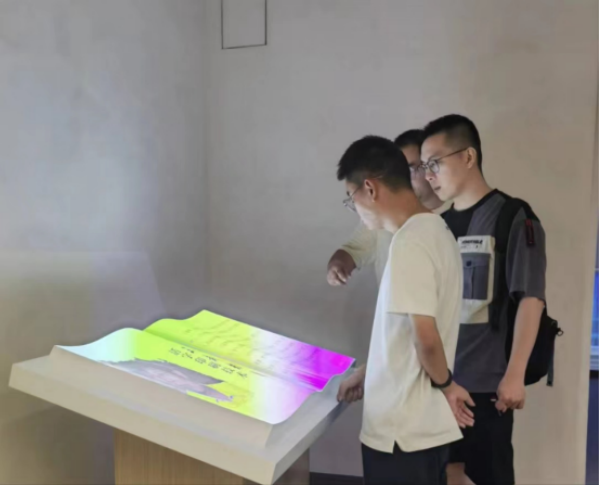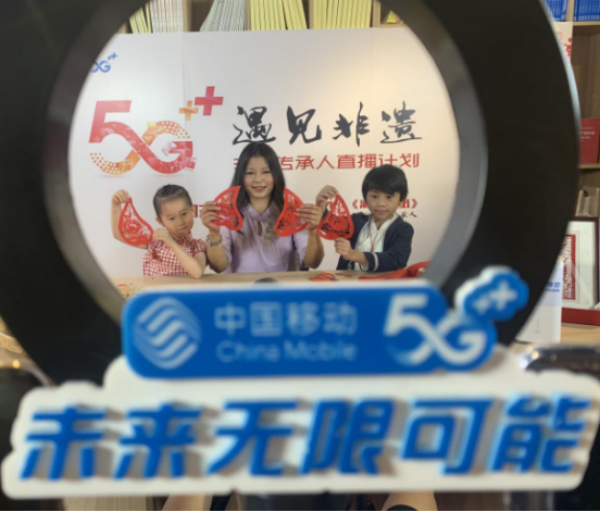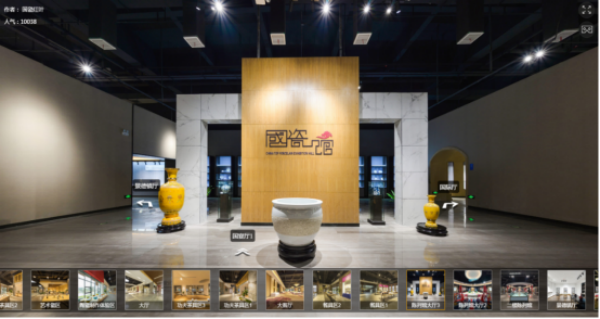Digital technologies such as big data, artificial intelligence (AI), artificial reality (AR), virtual reality (VR) and mixed reality (MR), as well as three-dimensional technology (3D), are changing rules of protection, production, manufacturing, spreading, consumption and service of intangible cultural heritages.
As a main force in building China into a scientific and technological powerhouse and a country with strong cyber technology, China Mobile Communications Group Co., Ltd. (China Mobile), with its key role in development of Digital China, has given full play to its digital technologies to promote intangible cultural heritages, intending to turn the cultural resources to the economic development advantage.
Traditional spreading approaches and content of intangible cultural heritages were simple as they were limited by space and environment. Only specific groups of people could be targeted.
China Mobile now uses modern technologies like holographic images, VR and 5G to vitalize intangible cultural heritages.
At the Culture and Art Center in Kunshan, East China's Jiangsu Province, the Kunqu Opera performance on the stage was also synchronously displayed on Dayu Bay Square about 5 kilometers away thanks to holographic images and 5G technologies.
It was China's first holographic digital theater featuring a 20-meter-wide and 10-meter-high stage. It started a new chapter of technology-based opera performance. By offline performance, online livestreaming and holographic displaying, the intangible cultural heritage can be widely spread at any time to any place.

The Kunqu Opera performed at the Culture and Art Center in Kunshan, East China's Jiangsu Province, is synchronously displayed at China's first holographic digital theater on Dayu Bay Square thanks to holographic images and 5G technologies. [Photo/sasac.gov.cn]
Digital technologies can also help restore endangered, or damaged but still valuable cultural heritages, or even ones that are currently non-existing.
For example, in Dongyuan Village, Ruian in Wenzhou, East China's Zhejiang Province, the only preserved wooden movable-type printing skill still used in China is demonstrated in the exhibition hall through VR technology. The skill is a national intangible cultural heritage and has been added to the UNESCO’s list of Intangible Cultural Heritages in Need of Urgent Safeguarding.

The wooden movable-type printing skill in Dongyuan Village, Ruian of Wenzhou, East China's Zhejiang Province is demonstrated at the exhibition hall through VR technology. [Photo/sasac.gov.cn]
Chaoshan paper-cutting in South China's Guangdong has a long history with unique local characteristics and special meaning. To encourage more people to know and learn it, China Mobile held a livestreaming, during which the inheritor of the Chaoshan paper-cutting was invited to teach the skill. Thanks to the high speed and low time delay of the 5G internet, the teaching course was shown everywhere across the internet.

A livestreaming is held to demonstrate Chaoshan paper-cutting. [Photo/sasac.gov.cn]
At present, China Mobile is pushing forward digital renovation and transformation and upgrading of traditional offline business patterns, intending to promote intangible cultural heritages to realize their commercial value and cultivate new consumption modes.
China Mobile has also built the "China Porcelain Pavilion", a real-life VR online shop. It is the first VR digital platform for porcelain enterprises in Jingdezhen, Jiangxi, the Millennium Porcelain Capital of China.
Through the platform, people are able to visit the small town online and to learn about the porcelain culture.
China Mobile also built a 5G-based ecology for the porcelain culture based on the AI-blockchain porcelain culture appraisal platform. It is intended to work on ceramic copyright appraisal issues and to promote innovation and development of the blockchain technology-based cultural and creative copyright industry.

A view of the "China Porcelain Pavilion", a real-life VR online shop built by China Mobile to promote porcelain culture [Photo/sasac.gov.cn]
Pressed wood oil is one of the provincial intangible cultural heritages in East China's Anhui Province. It requires more than 10 procedures and takes four to five days to complete.
Using technologies such as the internet of things, AI, big data and cloud computing, China Mobile built a tailored monitoring operation platform, realizing smart remote monitoring of pressed wood oil production, improving the quality and efficiency of the product and helping local people improve their incomes by opening the market for the oil.
In the future, China Mobile will continue to work on innovative production methods, spreading form and consumption channels to protect intangible cultural heritages.
(Executive editor: Xie Yunxiao)